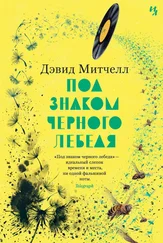If you hang on long enough, however, antiques can accrue a value they never had when new. The early nineties brought an unexpected revival of interest in the band. The Beastie Boys sampled ‘The Hook’ on their seminal LP Paul’s Boutique. Mark Hollis of Talk Talk cited Stuff of Life as a formative influence. Original vinyl copies of our singles and LPs were changing hands for serious sums of money – a market kept buoyant by legal issues that postponed the two albums’ CD release. Damon MacNish’s grunge version of ‘Smithereens’ became a Top Five hit in 1994. The biggest hit of my solo career, ‘Be My Religion’, followed in 1996, thanks to its use in a Volkswagen advert. (What can I say? I needed the money.)
Utopia Avenue reappeared in the record shops, piled high in the Nineties megastores. Nieces and nephews told me that we were being played in the artier college dorms. Teenagers appeared at my shows in growing numbers, asking for songs I hadn’t played since decimalisation. (Google it.) I remember turning down a request for ‘Prove It’ at Cambridge Folk Festival on the grounds that I doubted I still knew the words. A kid with tattoos and a mullet yelled back, ‘Don’t worry, Elf, we’ll sing ’em for you!’ They didn’t let me down. Then, in the early days of the internet, my nephew typed ‘Utopia Avenue’ into my new computer – and page after page scrolled up about the band. Views, opinions, trivia, chatrooms, fan clubs, reviews, set-lists of gigs we’d played, new images I’d never seen. Some of the photos moved me to tears, especially those of Dean.
In 2001, Levon – by this time an Oscar-nominated film producer – presented me with a high-quality bootleg of our Knowland Park show that he had obtained through, as he put it, ‘serendipity and the Dark Arts’. If I do say so myself, we sounded shit hot. The eight-song set included an in-progress version of Jasper’s track ‘Who Shall I Say Is Calling?’, lost in the Turk Street fire. Digger and I digitally remastered the entire album at Fungus Hut, and Ilex Records issued it. To everyone’s astonishment, our little vanity project – snappily titled Utopia Avenue Live at Knowland Park, 1968 – charted at thirty-nine on the first week and hovered in the Top Thirty for three months. When YouTube got up and running, snippets of interviews and TV shows the band had done began to pop up. (I still play our exchange with Henk Teuling on Dutch TV on gloomy days. Comedy gold.) In 2004, the year I turned sixty, Glastonbury invited me to play a set. My sister took me aside and told me, ‘Sorry, sis, but it’s time to stop deluding yourself and face the facts: you’re just not properly obscure any more …’
I will not deny this was all very gratifying, but while Utopia Avenue’s music was re-oxygenated, the band itself remained moribund. What was true in 1968 was true in the twenty-first century: without Dean, there could be no band. Promoters approached Jasper, Griff and me regularly to see if we had changed our minds. Even Dean’s son Arthur Craddock-Moss, a film and TV composer, had offers to take the ‘New Utopia Avenue’ on the road. Our answer was always the same: ‘We’ll only do it if Dean says yes.’
Fast-forward to August 2018. I was getting ready for bed when I heard a knock on my door. It was Jasper in a long black coat, like a man in a Bob Dylan song, clutching a battered guitar case. The following dialogue is a reconstruction, but reasonably accurate:
Jasper:
I’ve got them. Me:
Nice to see you too, Jasper. Jasper:
Nice to see you, but I’ve got them. Me:
Got what? Jasper:
( Holding up a MacBook like an exorcist brandishing a Bible) Our songs. On here. Me:
Our albums? I’ve got them too. So? Jasper:
No, Elf, our lost songs. The California sessions. On hard-drive. I’ve heard them. It’s us. Here. Me:
( Croak. ) My Wife:
Evening, Jasper, come in – Elf, would you ever shut the door before every moth in the county joins the party?
Jasper came in, and explained that a suitcase of twelve reel-to-reels from our sessions in LA and San Francisco had surfaced at a car-boot sale in Honolulu earlier in the year. How had they escaped the fire at Turk Street? Nobody knew. Was the tapes’ preservation due to accident, theft, misfiling or divine intervention? Anybody’s guess. How and when had the suitcase arrived in Hawaii? Another mystery.
One thing was known. A young man named Adam Murphy had acquired the tapes at a car-boot sale while honeymooning in Oahu. Adam, who blogs as ‘Heritage Audiophile’, possessed two items crucial to this story. One: a 1966 Grundig reel-to-reel player capable of playing the 1965 BASF and TDK tapes. Two: the nous to run the output through a digital converter on the very first playback, to ensure that the recordings would be safely captured for posterity if the fifty-year-old tapes disintegrated. At least half did exactly that. Let the record show that without Adam Murphy’s foresight you would not be reading these lines.
Once all the music was preserved, Heritage Audiophile set about identifying the artists. Soon after, Jasper received a call from a stranger with some rather special news …
Back in my kitchen, Jasper Bluetoothed his Mac to my speakers and clicked play and there we were: Dean, Jasper, Griff and me, aged twenty-three or -four, playing, singing, laying down tracks. ‘Temporal vertigo’ doesn’t come close. Here was my New York love song, ‘Chelsea Hotel #939’; Jasper’s bluesy psychodrama, ‘Timepiece’; and chunks of Dean’s musical trilogy, ‘The Narrow Road’. It’s not every day you hear your younger self play with a long-dead, long-missed bandmate, and I was reduced to emotional jelly.
Afterwards, Jasper, my wife and I sat around our table. Outside, owls hooted and foxes barked. Eventually, I was able to speak again. I asked, ‘Incredible, but what do we do with it?’
‘We make our third album,’ said Jasper.
We spent that weekend in my garden studio poring through the full nine hours. The material could be subdivided into ‘Mostly finished’, ‘Needs fleshing out’ and ‘Sketchy’. Sound quality was variable. The LA tapes had more hiss than the Turk Street sessions. Luckily, Dean hadn’t really got to work on ‘Narrow Road’ until San Francisco, so his irreplaceable vocals were sufficiently bright. The tracks sequenced themselves. Jasper’s and my two songs, conceived in and/or inspired by New York and the Chelsea Hotel, belonged on what vinyl lovers still think of as ‘side one’. Dean’s ‘Narrow Road’ trilogy, which started life as a possible soundtrack for an Anthony Hershey film that never saw the light of day, was an uninterruptible sequence. Its only logical home was ‘side two’. ‘I’m A Stranger Here Myself’ and ‘Eight Of Cups’ belonged between the ‘mostly finished’ and ‘needs fleshing out’ categories, while the third song – ‘The Narrow Road To The Far West’ – was a hypnotic but skeletal eight-minute bass track. We had planned to work on it the morning Dean was shot. As Jasper and I debated what to do with ‘The Narrow Road’, we hit a dilemma: was our job to make the album we would have made over the winter of 1968/9, had Dean lived? Or should we, instead, use the tapes as raw material for an album that Jasper and I wished to make now, in 2019? Were we purist restorers or postmodern creators?
Through trial and error, a guiding principle evolved. Jasper and I licensed ourselves to do whatever we wanted to do with the material, as long as we did not deploy post-1968 musical technology. Yes, then, to the mandolin on ‘Who Shall I Say Is Calling?’, and to Old Elf’s harmonies with Young Elf on ‘What’s Inside What’s Inside’. But no to sampling, auto-tune and rap (as if) and loops. I cheated only by programming my Fairlight to reproduce the sound of my old Hammond organ. Griff joined us for a few days to overlay percussion or replace his original drum-tracks where the sound was unsatisfactory. Arthur – old enough now to be his father’s father – filled in bass runs on Dean’s old Fender and laid down some blood-harmonies on ‘Eight Of Cups’. Levon joined us to fill a Levon-shaped hole in proceedings, and the photographer Mecca Rohmer, who shot our very first publicity snaps in March 1967, documented the brief resurrection of Utopia Avenue for posterity.
Читать дальше
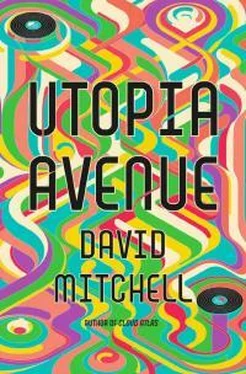

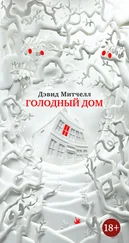
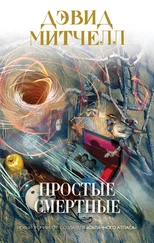

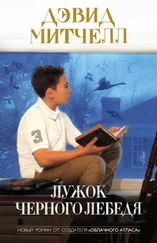
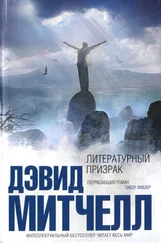
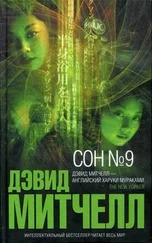
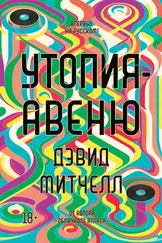
![Дэвид Митчелл - Под знаком черного лебедя [= Лужок черного лебедя]](/books/395644/devid-mitchell-pod-znakom-chernogo-lebedya-luzhok-ch-thumb.webp)
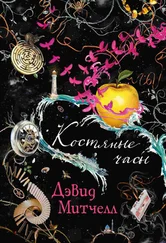
![Дэвид Митчелл - Литературный призрак [litres]](/books/432859/devid-mitchell-literaturnyj-prizrak-litres-thumb.webp)
